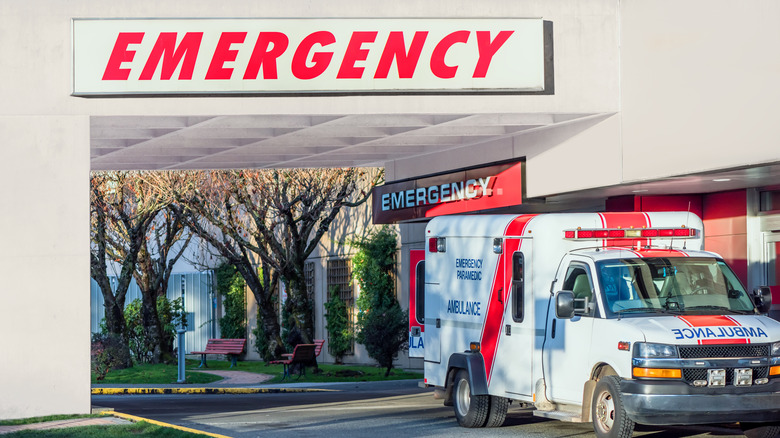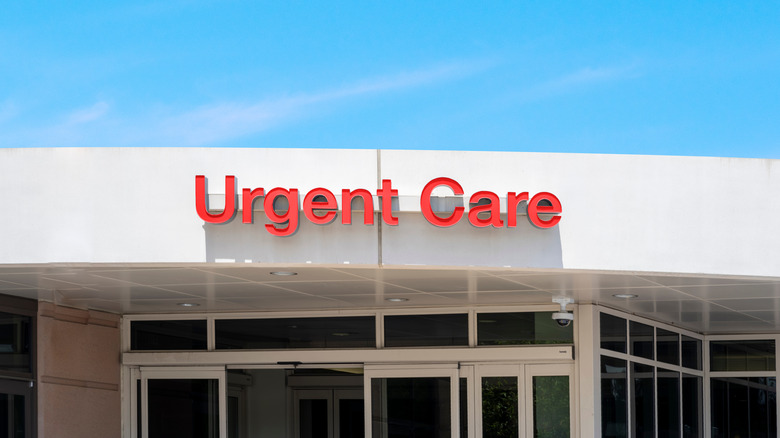Emergency Room Versus Urgent Care: Which One Should You Choose?
Imagine this scenario — it's Saturday afternoon and you're chopping vegetables in preparation for dinner. You get distracted for a moment, bring the knife down on your finger, and see that while there's no bone visible, you've got a large gash that is bleeding profusely and that a simple bandage, no matter how large, is not going to hold it together. Do you head to the nearest emergency room, or to urgent care?
It can be hard to decide, but knowing the differences between the two can potentially save you a lot of time and money.
Emergency rooms are often, but not always, located right next to a hospital. They are there to do what their name suggests — treat true emergencies that can't wait and are life- or limb-threatening. They are open 24/7 and can do in-depth diagnostic testing and treatment, as well as provide quick access to specialists (via Mayo Clinic Health System).
On the other hand, think of urgent care as a mid-point between your primary care doctor and the emergency room. When the problem is not life-threatening, but is still serious enough to need attention soon, urgent care is a good choice. Urgent care clinics are usually open later than doctor's offices, and are often open on weekends and holidays. They are set up to diagnose and treat many minor problems, like cuts and minor burns, earaches, joint or muscle pain, and vomiting or diarrhea.
Minor problems are best treated in urgent care
Timothy Tan, M.D., M.P.H., an assistant professor at the Icahn School of Medicine at Mount Sinai and an attending physician at Mount Sinai Urgent Care, told SELF, "Urgent care is a form of medical care that focuses on conditions that are not potentially life- or limb-threatening emergencies, but still require prompt care within 24 hours or less. [They can] also identify when a specialist is needed or when there is a potential emergency medical condition requiring an emergency room visit."
You'll often see a doctor much more quickly at urgent care than in an emergency room, and pay much less. Since emergency rooms treat the most critical cases first, patients who go there with a minor injury often wait hours for attention.
That being said, if you are having trouble breathing, uncontrolled bleeding, major trauma, or anything else that you suspect is life-threatening, err on the side of caution and get to the emergency room ASAP (via Cigna).


